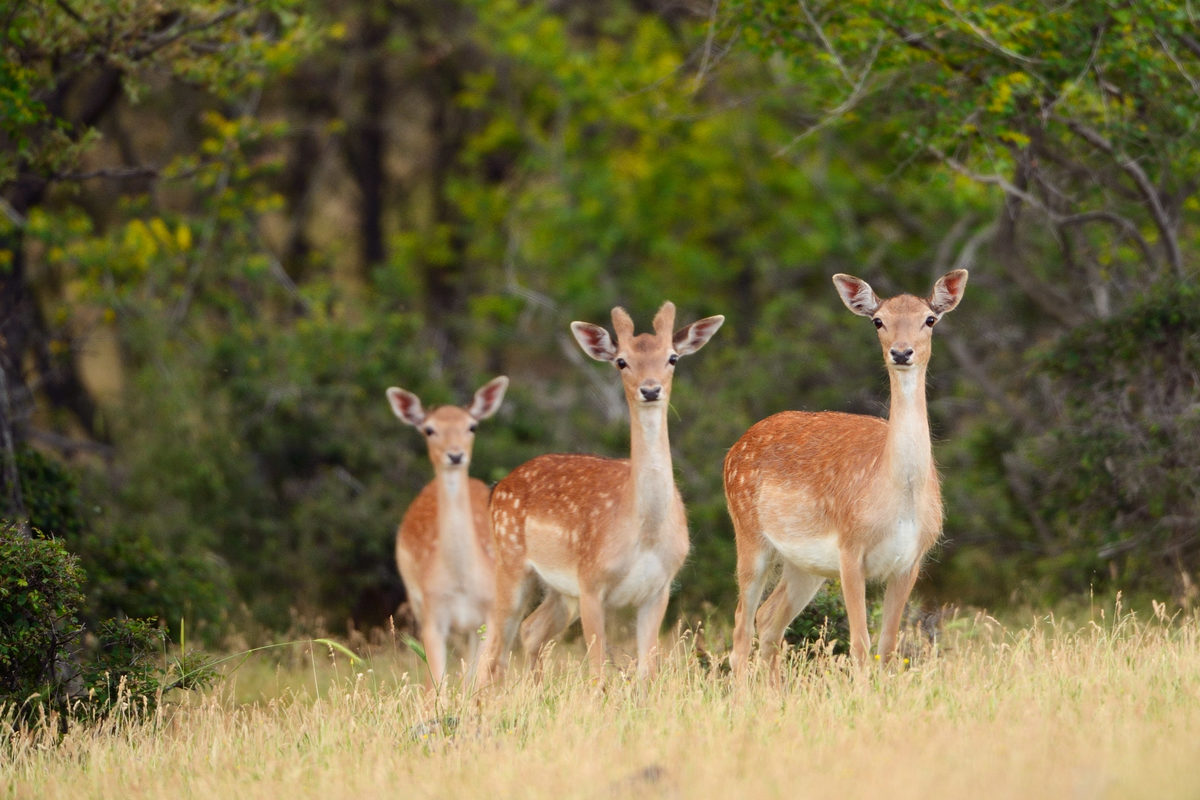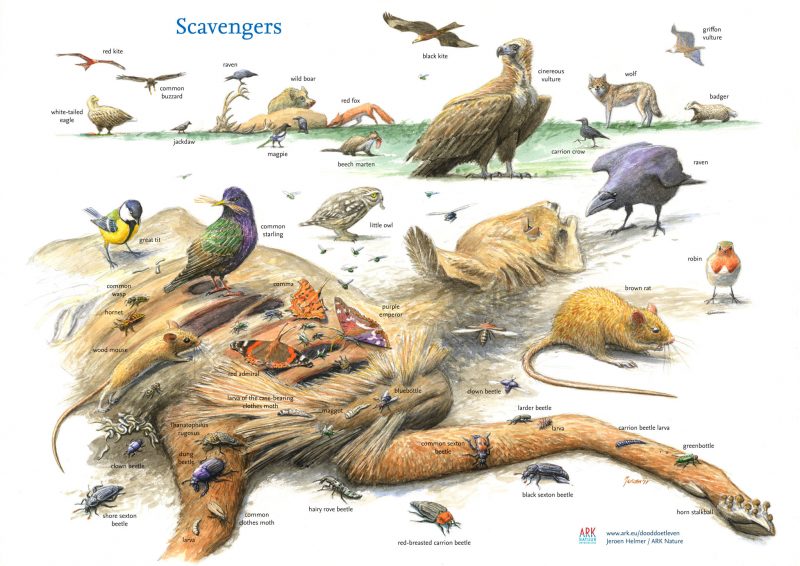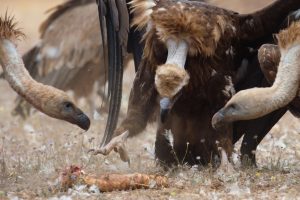As part of the long-term restoration of deer populations in the Rhodope Mountains, the latest reintroduction will further support the area’s endangered vulture species – as well as other scavengers and carnivores – by revitalising food chains and creating a healthier, more naturally balanced ecosystem.

 Closing the circle
Closing the circle
One of the core objectives of rewilding is to reinstate natural processes, such as the free movement of rivers, natural grazing and predation. In this regard, the reintroduction of missing species is often required in order to restore the full range of these processes and create healthier, more resilient, fully functioning ecosystems.
Such a transformation is not only better for wild nature, but means these ecosystems are more capable of delivering nature-based services to people, such as clean water, flood protection, and climate change mitigation through carbon drawdown.
Two recent releases of fallow deer in the Rhodope Mountains rewilding area in Bulgaria typify this restoration dynamic, with 12 animals reintroduced to the Byala River Natura 2000 area by the local rewilding team in January, and a further 14 earlier this month. As part of the ongoing European Commission-funded LIFE Vultures project, these reintroductions will further support the area’s endangered vulture species (as well as other scavengers, and carnivores such as wolves) by boosting the availability of wild prey and carcasses, and thereby helping to close the so-called “circle of life“.

Part of the process
The February fallow deer release was the final one of this winter season, with restocking activities expected to resume in the autumn. The latest reintroductions mean that over the last five years more than 400 fallow deer and 50 red deer have been released by the local rewilding team in the Rhodope Mountains, in cooperation with the local hunting associations of Kardzhali, Harmanli and Krumovgrad.
“These efforts have already proven successful in terms of enhancing local food chains,” says Rewilding Rhodopes rewilding officer Stefan Avramov. “The griffon vultures which breed in the area regularly feed on the carcasses of deer following their predation by wolves.”
Viable and growing populations

Red and fallow deer populations both need to contain at least 50 adult animals to be viable. Restocking efforts have now established three viable and growing populations of fallow deer, and one rapidly growing red deer population (the last red deer release was in 2018). This autumn the rewilding team will conclude restocking efforts with the release of another twenty fallow deer, from which point the populations of both red and fallow deer will be allowed to grow naturally.
“These latest releases align with the rewilding vision for the Rhodope Mountains, which would see this hugely biodiverse area regulated by natural processes, with wildlife species – including vultures – thriving in more natural densities,” explains Avramov. “As part of this vision, local people will increasingly benefit through enhanced nature-based economic opportunities and nature-based services.”
Keeping track
To support restoration efforts in the Rhodope Mountains rewilding area, two newly released female fallow deer have been fitted with GPS collars. Satellite tracking will help the local rewilding team learn more about the distribution and movements of the deer, and the threats that they face (such as poaching), thereby boosting measures to protect the species. The data that is gathered will also reveal the animals’ favourite resting and feeding sites in the core rewilding area.
Starting this month and continuing into March, the Rewilding Rhodopes team will monitor and count red deer and fallow deer populations across the entire rewilding area. “With populations of deer increasing every year, through both restocking and natural growth, we hope to see more evidence of vultures scavenging on deer carcasses,” says Avramov.
Local support
The fallow deer was once widespread in Bulgaria, but was probably hunted to extinction in the country in the early Middle Ages, with population restoration beginning in the middle of the twentieth century. The eastern RhodopeMountains themselves could maintain thousands of fallow and red deer if populations were allowed to grow naturally.
The Byala River Natura 2000 area was selected as a site for fallow deer population restoration due to its suitable habitat, the permanent presence of black vultures (for roosting and feeding), and the willingness of local hunting groups to assist with the recovery of the species.
Cross-border project
All fallow and red deer releases in the Rhodope Mountains rewilding area are carried out under the framework of the European Commission-funded LIFE Vultures project, with additional support provided by Fondation Segré. Starting in 2016, this five-year project was developed by Rewilding Europe, in collaboration with the Rewilding Rhodopes Foundation, the Bulgarian Society for the Protection of Birds (BSPB), and a range of other partners.
Focusing on the Rhodope Mountains rewilding area, as well as a section of the Rhodope Mountains in northern Greece, the aim of the project is to support the recovery and further expansion of local black and griffon vulture populations, mainly by improving the availability of natural prey (such as fallow and red deer), and by reducing mortality through factors such as poaching, poisoning and collisions with power lines.
“As part of the LIFE Vultures project, the Rewilding Rhodopes team has already taken huge steps towards rebuilding а stable deer fallow deer population in the Bulgarian Rhodopes,” says Stefan Avramov. “We are now looking forward to future successful collaboration with our Greek colleagues, as we work to restore the species throughout the cross-border area.”
Want to know more?
- Rewilding Rhodopes
- LIFE Vultures
- Rhodope Mountains rewilding area
- Experience the Rhodope Mountains rewilding area with the European Safari Company

